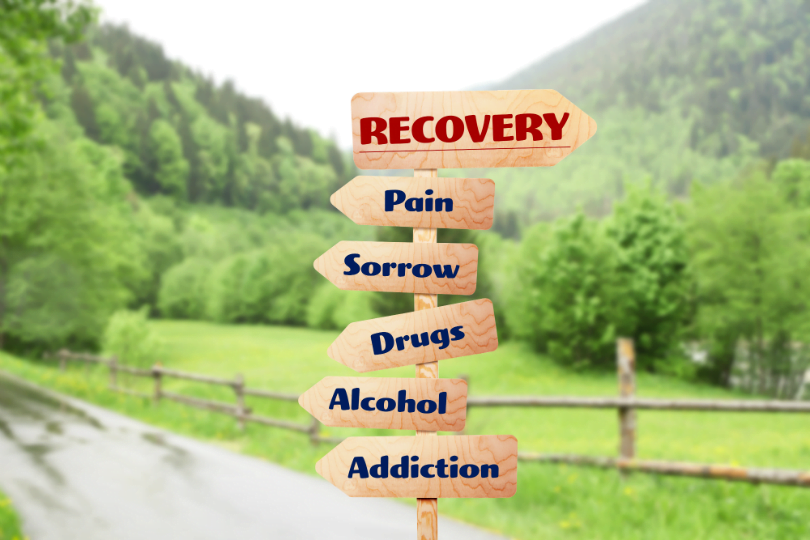The purpose of any substance abuse treatment facility is to guide an addicted individual down the path of healing and recovery. The choice between an inpatient and outpatient treatment for substance abuse is often determined by the characteristics of the individual and the addiction.
Understanding the unique concepts between a residential treatment facility and an outpatient treatment facility will make the process of choosing the right treatment center for you or your loved one a bit less complicated. Listed below are some fundamental differences that can point you in the right direction as you begin this journey.
Inpatient and Outpatient Treatment Approaches
Inpatient Addiction Treatment
Substance abuse treatment in an inpatient facility is immersive and intense. A structured day includes prepared, healthy meals, daily therapy, evening activities, and staff supervision. Many find safety and comfort within the walls of the treatment facility as it is absent of old social contacts and triggers that could threaten one’s efforts to overcome an addiction.
Inpatient treatment is a “one-stop-shop” of sorts in which individuals can access therapies that are supportive of a clean and sober lifestyle.
Equine therapy, yoga, nutrition, massage, and employment training are just a few examples of supplemental services that are used in conjunction with cognitive therapy, to heal and build productive habits for a healthy lifestyle in both inpatient and outpatient rehab programs.
Outpatient Addiction Treatment
The flexible nature of outpatient addiction treatment programs allows addicted individuals to get the help they need while still maintaining the ability to tend to important responsibilities at home. Outpatient care can be equally as effective for some addicted individuals; however, those with an unsupportive home life, a mental instability, or a history of relapse may not be suited for this independent approach.
Many outpatient facilities offer treatment programs that call for a commitment to daily therapy and counseling sessions. Intensive Outpatient Therapy (IOP) is structured for several meetings per week that work to achieve milestones in recovery.
Inpatient & Outpatient Treatment Amenities
Inpatient Substance Abuse Treatment
Inpatient treatment centers provide clean and comfortable accommodations for addicted individuals to reside in while they are immersed in intense therapeutic meetings and activities according to their individual treatment plan. Healthy meals are prepared, and an orderly environment is maintained.
Services often accessible at inpatient treatment centers include detox under medical supervision, cognitive and behavioral therapy, individual and group counseling and aftercare planning. These services are often offered in inpatient as well as outpatient facilities.
Other beneficial amenities that can be included in inpatient programs are private rooms, a workout center, meditation areas, therapeutic massages and several other options.
A variety of special approaches that are combined with traditional strategies, such as art or music therapy are often a part of inpatient treatment as well.
Outpatient Substance Abuse Treatment
Outpatient treatment strategies allow an addicted individual to remain in their healthy home environment, which gives unique access to daily life while getting healthy.
Newly forming habits are integrated immediately through daily real-world experience, which promptly allocates opportunities for any adjustment that may be deemed necessary.
Treatment in an outpatient setting is a flexible way to construct a strategy that includes therapies focused on physiological and mental healing from active addiction.
Continuing to live in a familiar home and traveling to daily treatment sessions also supports family involvement and encouragement that is crucial in the healing and recovery process.
The Difference in Inpatient & Outpatient Treatment Cost
Inpatient Treatment Cost
While loved ones and those needing help are willing to spare no expense on the journey to addiction recovery in an inpatient or outpatient facility, resources are limited for many. Fortunately, there is financial assistance available.
Many insurance plans—including Medicare, cover inpatient treatment, and out-of-pocket costs can be tax deductible.
Treatment facilities accommodate those in need whenever possible by offering fees on a sliding scale—sometimes incremental payments are accepted.
Inpatient treatment costs can vary extensively depending on the length of treatment, amenities of the facility, treatment options, and facility location.
Treatment centers with luxury amenities, such as private rooms or a beachfront location, can cost tens of thousands of dollars per person per stay, while more cost-effective facilities can be as low as $2,000 per person per stay.
Outpatient Treatment Cost
Similar to inpatient treatment, outpatient treatment costs can vary widely depending on the length of treatment, services needed and frequency of treatments.
Most insurance plans cover the fees, including Medicare, and the out-of-pocket cost of outpatient treatment is often tax deductible. Pricing for outpatient treatment can be as low as having no cost and can be as high as several thousands of dollars.
Outpatient treatment is often more affordable with the absence of added expenses such as meals, overnight accommodations, and staff supervision while providing quality care and guidance on the path to a happy, healthy life of recovery.
Inpatient/Outpatient Treatment Statistics
Inpatient Treatment Statistics
The National Institute of Drug Abuse (NIDA) discusses research indicating that engaging in treatment for at least 90 days is ideal while a minimum of 12 months could be necessary for a methadone treatment for Opioid addictions in inpatient and outpatient treatment centers.
With 90 days of inpatient treatment for addiction, one has plenty of opportunities to gain confidence, apply and refine new habits, create a comprehensive aftercare plan to address potential relapse concerns, and heal important relationships that may have suffered over the course of the dependency.
Outpatient Treatment Statistics
Outpatient substance abuse treatment duration is contingent on which services are a part of an individual’s personal treatment strategy. Many transitions from inpatient to outpatient treatment before relying exclusively on their aftercare plans in early recovery.
As mentioned above, individuals have a higher chance of a successful recovery after completing a 90-day treatment term. When choosing an outpatient facility, an IOP is an astute option as it offers many similar treatments to that of an inpatient program, and many are able to complete an IOP in 90 to 120 days.
Outpatient treatment centers also offer effective aftercare support, which individuals entrust their efforts in sobriety for several weeks to several years in recovery.
If you’re not sure if the inpatient or outpatient option is right for you, you’re not alone. Give us a call today and speak with a professional addiction advisor. We can help. (877) 322 – 2450


















I appreciate how detailed this guide is to explaining the differences of inpatient vs outpatient therapy. Finding the right method per a individual seems the best way to ensure success.